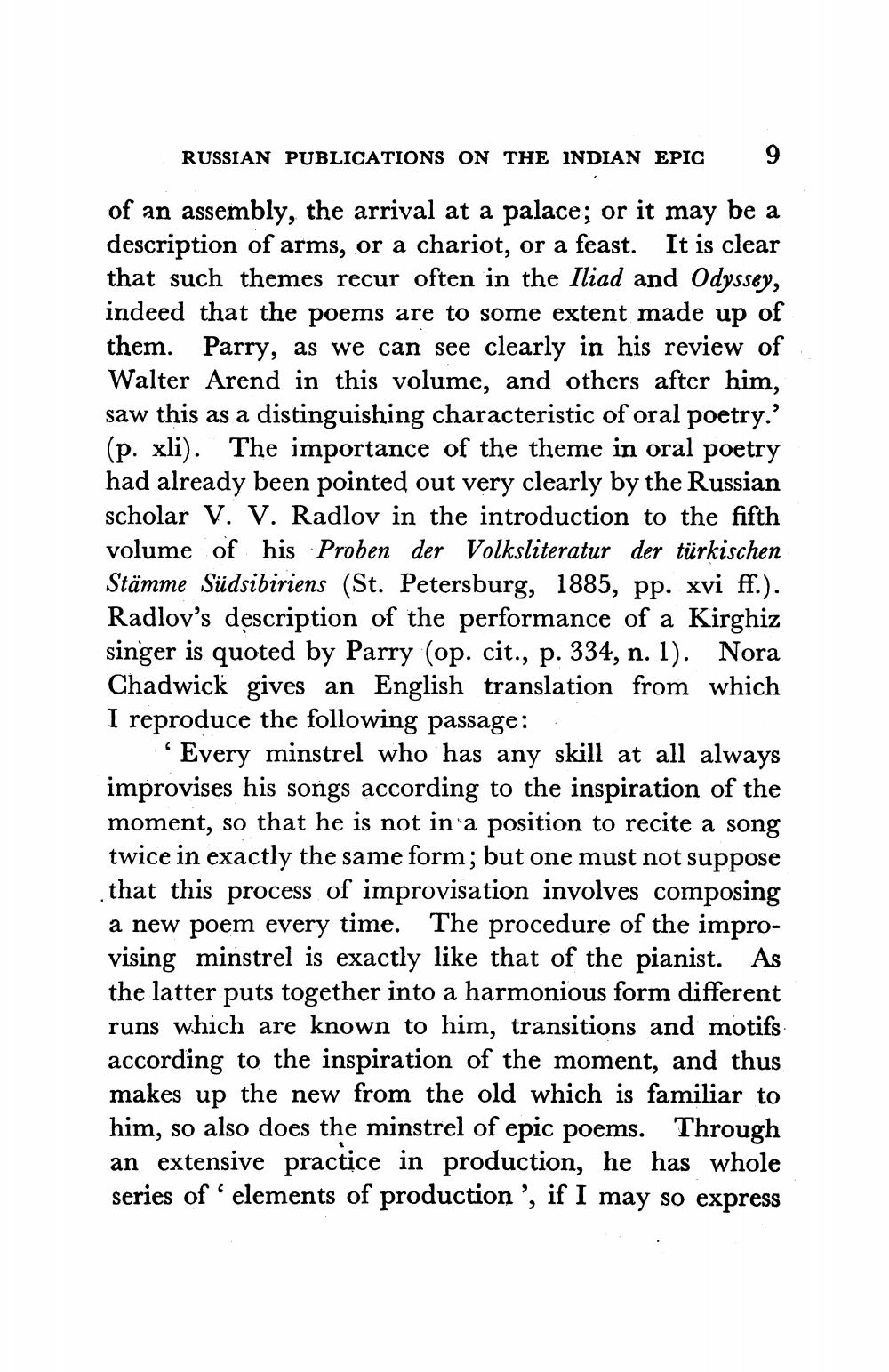________________
RUSSIAN PUBLICATIONS ON THE INDIAN EPIC
9
of an assembly, the arrival at a palace; or it may be a description of arms, or a chariot, or a feast. It is clear that such themes recur often in the Iliad and Odyssey, indeed that the poems are to some extent made up of them. Parry, as we can see clearly in his review of Walter Arend in this volume, and others after him, saw this as a distinguishing characteristic of oral poetry.' (p. xli). The importance of the theme in oral poetry had already been pointed out very clearly by the Russian scholar V. V. Radlov in the introduction to the fifth volume of his Proben der Volksliteratur der türkischen Stämme Südsibiriens (St. Petersburg, 1885, pp. xvi ff.). Radlov's description of the performance of a Kirghiz singer is quoted by Parry (op. cit., p. 334, n. 1). Nora Chadwick gives an English translation from which I reproduce the following passage:
Every minstrel who has any skill at all always improvises his songs according to the inspiration of the moment, so that he is not in a position to recite a song twice in exactly the same form; but one must not suppose that this process of improvisation involves composing a new poem every time. The procedure of the improvising minstrel is exactly like that of the pianist. As the latter puts together into a harmonious form different runs which are known to him, transitions and motifs according to the inspiration of the moment, and thus makes up the new from the old which is familiar to him, so also does the minstrel of epic poems. Through an extensive practice in production, he has whole series of elements of production', if I may so express




